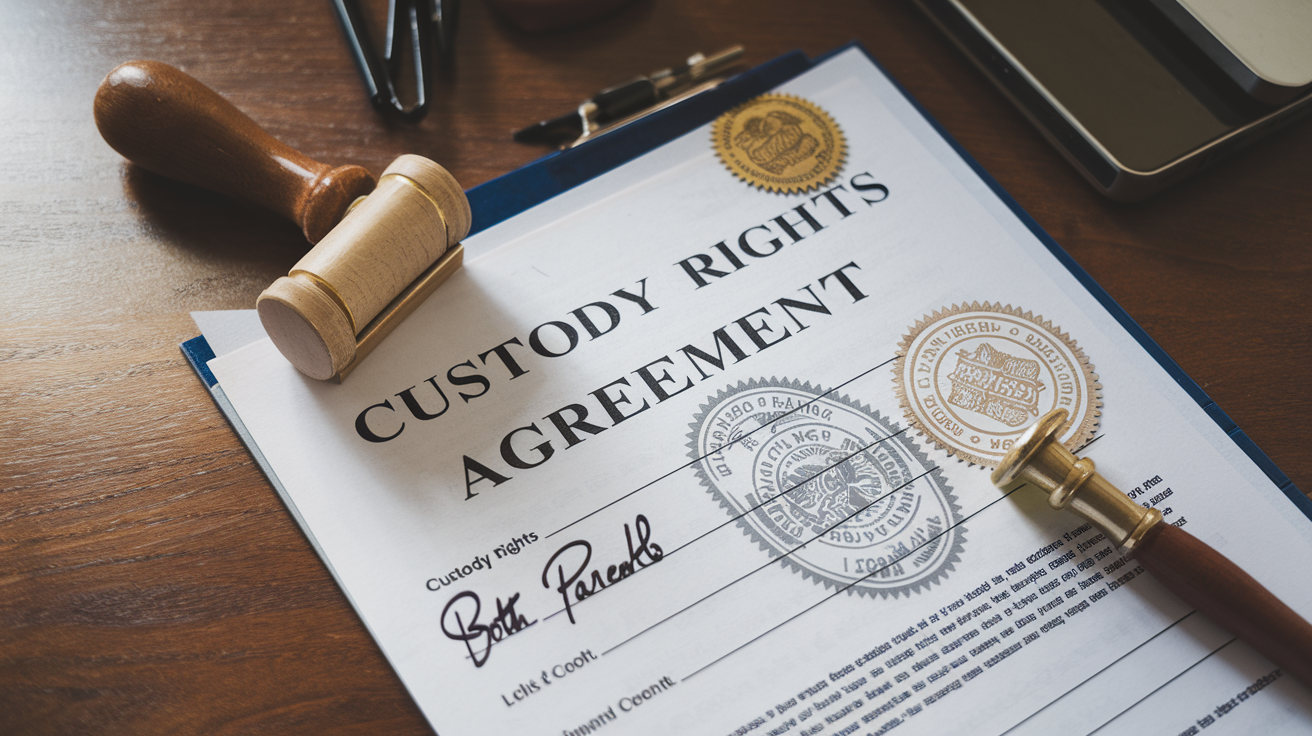Getting your child ready for school brings up many questions when you’re a single parent. School registration often becomes tricky when parents live apart.
You might wonder if both parents need to sign those forms or if you can handle it alone.
Many parents face this exact situation. The rules about school registration and parental rights can seem confusing.
Your ability to register your child alone depends on several factors, like custody arrangements and state laws.
Let’s look at what you need to know about school registration as a single parent.
Understanding Your Rights as a Parent

Legal custody matters and your parental rights start with understanding custody. It gives you the power to make educational choices for your child, which includes picking schools and signing registration forms.
- Sole Custody: When you have sole custody, you can make school decisions without needing approval from the other parent. You’ll need to show the school your custody papers as proof of your authority.
- Joint Custody: With joint custody, parents have the right to make school choices. This means both of you should work together on school registration. Schools often ask for both signatures in joint custody cases.
Your court orders spell out your specific rights. Keep a copy handy – schools will want to see these papers. They help staff understand who can make decisions for their Children.
Can a Single Parent Enroll a Child in School

Generally speaking, a parent cannot separately switch a child’s school without the approval of other parents who are responsible for the child.
This is because significant decisions, such as those of education, necessitate the approval of all parties with parental responsibility.
However, if a parent has sole parental responsibility or urgently needs to change a child’s school, they can do so without the other parent’s consent.
- Legal Authority Requirement: You need proper legal authority to enroll your child alone. This means having sole legal custody or being the primary residential parent with education decision rights.
- Court Order Guidance: Your custody order sets the rules. Some orders clearly state who can make school choices. Check your papers before starting the enrollment process.
- Emergency Situations: Sometimes, You might need to enroll your child quickly due to moves or safety concerns. Schools often allow temporary enrollment while you sort out the legal parts.
- School Policy Differences: Each school has its own rules about single-parent enrollment. Call the school office first to learn what papers they need. This saves time and stress later.
- Documentation Needs Bring These Items to Register: Your Valid Photo ID, Proof you live in the school district, Court Papers showing your rights, your Child’s birth certificate, and Past school records.
- Protection Steps: Tell the school about any custody limits. Give them copies of court orders that affect who can pick up your child or see their records.
Outcomes of Not Agreeing on a School with Your Ex-Spouse

If you and your ex-spouse have shared legal custody and cannot agree on school enrolment, you may need to involve the school system or the court in the decision.
The court will evaluate each parent’s stance and determine where the child should attend school.
- Legal Problems: Enrolling your child without a proper agreement could lead to court issues. Your ex-spouse might file a motion against you, leading to extra court dates and costs.
- School Withdrawal Risk: The other parent could force the school to remove your child if proper enrollment steps aren’t followed. This creates stress and disrupts your child’s education.
- Damaged Co-Parent Trust: Making school choices alone can hurt your working relationship with the other parent. This might make future decisions about your child even harder.
- Extra Costs Fighting About School Choice Often Means: Legal fees, court costs, time off work for hearings, and mediation expenses.
- Impact on Your Child School Disputes Between Parents Can Affect Your Child: By creating anxiety about school, making them feel caught in the middle, disrupting their learning, and affecting their friendships.
- School Relationship Issues: Schools may become wary of getting involved when parents fight. This could affect teacher communication, special requests, school activity participation, and parent-teacher meetings.
Can Child’s Wishes Be Considered in the Enrollment Decision

Although the parents or legal guardians usually decide on school enrolment, a child’s wishes should be considered, particularly in custody conflicts.
- Age and Maturity Matter: Courts often consider older children’s school preferences. A teenager’s views typically carry more weight than a young child’s thoughts about school choice.
- Reasonable Reasons Your Child’s Reasons for Wanting a Specific School Should Make Sense: Good reasons include special programs they want to join, friends and social connections, sports or music opportunities, and distance from both parents’ homes
- Limits on Child Input: Remember that children can’t make the final choice. Parents and courts still need to consider district boundaries, look at school quality, consider practical matters, and ensure the choice fits custody plans.
- Professional Help: Sometimes, others can help understand your child’s wishes, such as school counselors, family therapists, education specialists, and child advocates.
- Balancing Everyone’s Needs The Final School Choice Needs to Work For: Your child’s education, parents’ schedules, transportation plans, and family finances.
How Does Joint Custody Affect the Process of School Enrollment
Shared decision rights joint custody means both parents have equal say in education choices. Both parents need to agree on school selection and enrollment decisions.
- Required Signatures: Most schools want both parents to sign enrollment forms with joint custody. This shows that both parents know about and agree with the school choice.
- Communication Requirements: you must share school information with the other parent. This includes school options being considered, registration deadlines, required documents, and school events and meetings.
- District Rules: School districts often have specific policies for joint custody. Contact the school early to learn their exact requirements for enrollment paperwork.
- Dispute Resolution When Parents Disagree About School Choice: Check your custody order for decision-making rules, try talking it through with the other parent, consider working with a mediator, and seek legal help if needed.
- Information Access: Both Parents Can get copies of school records, talk to teachers, join school meetings, and see grades and progress reports.
- Address Verification: Schools need to know where both parents live. This helps with emergency contacts, school communications, transportation planning, and district boundary rules.
Conclusion
Registering your child for school as a single parent involves careful planning and understanding your rights. Every parent wants to make the best educational choices for their child while following legal requirements.
Working with your ex-spouse on school decisions helps create a smooth enrollment process. Keeping your child’s education as the main focus can guide your choices even when challenging.
Remember to:
- Check Your Custody Agreement First
- Talk with The School About Their Requirements
- Keep Good Records of All Decisions
- Consider Your Child’s Input when Appropriate
Need more help with co-parenting and education decisions? You can speak with a family law attorney or your school district’s administration office.
Frequently Asked Questions
How to Avoid Shared Custody?
You can’t simply avoid shared custody. Courts favor both parents staying involved in a child’s life unless there are safety concerns. Only serious issues like abuse or neglect might change this.
Can Non-Custodial Parents Enroll Their Child in School?
A non-custodial parent can’t enroll their child in school without legal custody rights for education decisions. They’ll need court permission or the custodial parent’s agreement.
Can My Ex Unenroll My Child from School?
Your ex can only unenroll your child if they have legal custody rights for education decisions. Check your custody agreement to know who has this power.








